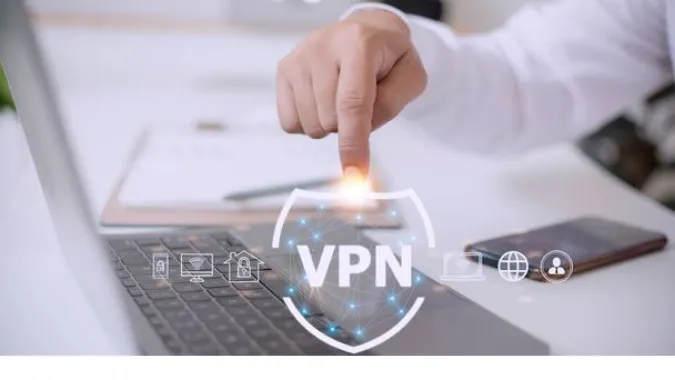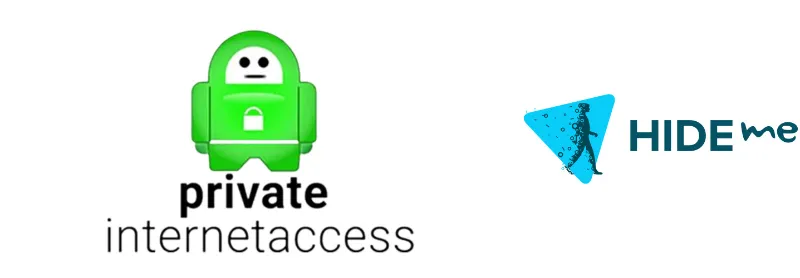Today, we’re diving into a topic that has undoubtedly crossed the minds of many remote workers: does a work VPN expose my home network to my employer?
We’re all about privacy and understanding the tools we use daily, so let’s get to it!
A Virtual Private Network, or VPN, is a powerful tool for securing your data and maintaining privacy online.
But as more of us transition to remote work, we’re left wondering just how private our home network remains when we connect to the office via a VPN.
Quick Answer
In a nutshell, using a work VPN does not typically expose your home network to your employer.
When you’re connected to a work VPN, your employer can see the data you send and receive over the VPN, but they cannot access other devices on your home network or see your home internet activity outside of the VPN.
That means, they can’t peek into your personal emails, see which Netflix show you’re binge-watching, or know what online games you play on your personal devices, provided these are not running through the VPN.
However, it’s important to note that your location can be exposed to your employer through the VPN.
While a VPN can mask your actual IP address, if you’re using a work VPN, your employer can see the IP address of the VPN and could infer your general location from this.
A VPN creates a separate, encrypted “tunnel” for your work-related internet use. Your home network remains separate and private.
But always remember: when using work-provided tools and resources, there may be certain expectations or guidelines around privacy and use.
What is a VPN and How Does It Work?
A Virtual Private Network (VPN) is essentially your own personal tunnel on the internet superhighway. It’s a service that grants you online privacy and anonymity by creating a private network from a public internet connection.
The magic lies in the way it masks your internet protocol (IP) address, making your online actions virtually untraceable.
Defining a VPN
Picture a VPN like a secret passageway in an old castle. Just as this hidden path allows inhabitants to move unseen, a VPN allows data to travel securely and discreetly.
It creates an encrypted tunnel for your data to pass through, away from the prying eyes of hackers, your Internet Service Provider (ISP), and yes, even your employer.
One major role of a VPN is to protect sensitive data. Whether it’s company secrets or customer information, a VPN ensures that this data remains secure when transmitted over potentially unsecure networks.
The Role of a VPN in Work Settings
In a work setting, a VPN becomes especially crucial. Employers often require employees to use a VPN when working remotely to ensure that any information accessed or shared over the internet is encrypted and secure from potential threats.
The VPN essentially extends the private work network to your home or remote location, providing access to the same resources as if you were physically in the office.
That said, it’s important to understand the implications of using a work VPN on your home network. Rest assured, your employer won’t be peeking at your personal data.
The Connection between Your Home Network and Work VPN
The relationship between your home network and your work VPN might seem complicated, but let’s simplify it.
What Information Passes Through a VPN
Imagine your VPN as a private highway that connects your computer to your office servers. When you’re on this highway, only the data related to your work travels through it.
So, when you’re working on a project or sending emails via your work account while connected to the VPN, this information is transmitted through the VPN tunnel.
What doesn’t travel on this private highway? Anything that’s not work-related.
So, if you decide to take a break and check the latest sports scores on your personal device (that isn’t connected to the VPN), this data doesn’t go through the VPN. It uses the regular, public internet.
Does Using a Work VPN Give Your Employer Access to Your Home Network?
The simple answer is no. Using a work VPN does not give your employer access to your home network. They can’t see the devices connected to your network or what you’re doing on the internet outside the VPN.
The VPN connection between your work device and your company’s server is established. Other devices on your home network, like your personal phone, tablet, or family members’ devices, are not part of this connection.
Even if you’re surfing the web on your work computer while connected to the VPN, only the data related to your work goes through the VPN. Your personal browsing remains private.
Can my employer see what I do on my home network?
No, they can’t see what you’re doing on your home network while you’re connected to the VPN, as long as you’re using a device that isn’t connected to the VPN.
Privacy and Your Work VPN: What You Need to Know.
When it comes to privacy and your work VPN, it’s a common question to ask: “Can my employer see what I do on my home network?“
Understanding the relationship between your VPN, your work, and your home network can help alleviate these concerns.
Let’s break down what you need to know about privacy when using a work VPN.
Work Data and Personal Data: The Separation
When you’re connected to your work VPN, remember that your employer can only see your work-related activity that’s happening through the VPN.
They cannot see your personal browsing or what other devices on your home network are doing.
The VPN serves as a secure pathway between your work device and your employer’s servers.
When you send an email from your work account or access a work-related document, this information passes through the VPN. It’s like you’re in your office, using the office network.
Your Location and Your VPN
When using a work VPN, your employer may be able to infer your general location based on the IP address assigned by the VPN.
So, will a VPN hide my location from my employer? In most cases, not entirely.
If privacy is a concern, it’s important to discuss it with your employer or your IT department. Transparency about what information is tracked and how it’s used can ensure you feel comfortable while working remotely.
Remember, using a work VPN is essential to secure remote working and doesn’t mean your employer has unrestricted access to your personal information or home network activities.
Best Practices for Using a Work VPN
Using a work VPN is an integral part of many remote workers’ routines, but there are some best practices to follow to ensure you’re making the most of your VPN while maintaining your privacy.
Separate Work and Personal Activities
As we’ve mentioned, a VPN is like a secure tunnel between your work device and your company’s servers. Try to keep your work and personal internet activities separate.
This helps maintain your privacy and can prevent potential security threats to your company’s network.
Check Your VPN Connection
Before accessing sensitive work-related data or platforms, ensure your VPN is connected and functioning correctly.
If you’re unsure how to check this, reach out to your IT department for guidance. Remember, the VPN protects this data by encrypting it as it’s transmitted over the internet.
Discuss Privacy with Your Employer
If you’re unsure or uncomfortable about what data your employer can see when you’re connected to the VPN, it’s best to discuss it.
Many employers have policies in place that respect employee privacy and outline what data is monitored.
Secure Your Home Network
While a VPN secures the data transmitted between your work device and the company’s servers, securing your home network is equally important.
Regularly updating your router firmware, using strong, unique passwords, and enabling WPA3 (if available) can help protect your home network.
Frequently Asked Questions (FAQ).
Q1: Does a work VPN expose my home network to my employer?
A: No, using a work VPN does not expose your home network to your employer. The VPN creates a secure tunnel between your work device and the company’s server. Your employer can’t see what other devices are on your home network or what you’re doing on the internet outside the VPN.
Q2: Does a work VPN expose my location to my employer?
A: Yes, in some cases. While a VPN masks your IP address, your employer may be able to infer your general location based on the IP address assigned by the VPN. If this is a concern, it’s best to discuss it with your employer or the IT department.
Q3: Can my employer see what I do on my home network?
A: No, your employer cannot see what you do on your home network when you’re connected to the work VPN. The VPN only transmits work-related data.
Q4: Will a VPN hide my location from my employer?
A: Not entirely. While a VPN does mask your IP address, your employer may be able to infer your general location based on the IP address assigned by the VPN.
Conclusion
Navigating the world of VPNs and understanding the level of access your employer has to your data can be tricky.
However, it’s essential to remember that a work VPN is designed to provide a secure connection for your work-related activities, not to give your employer access to your home network or personal activities.
While a work VPN might provide some information about your location to your employer, it’s generally not a tool for them to monitor your personal internet usage.
If you have any concerns about your privacy while using a work VPN, it’s always best to discuss these with your employer or IT department.
As the world adapts to remote work, using a VPN is becoming increasingly common. By understanding how a VPN functions and following best practices, you can ensure that you work securely and maintain your privacy.









